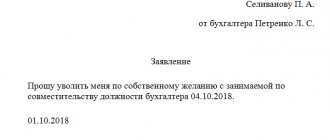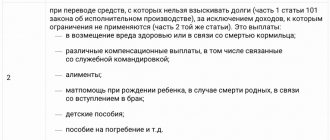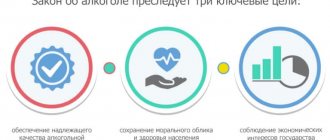The definition of part-time work is given in Art. 282 Labor Code: this is the performance by an employee of other regular paid work under the terms of an employment contract in his free time from his main job. There are two types of part-time work:
- internal (one employer at the main place of work and part-time);
- external (in addition to the main job, the employee performs other work for another employer).
Elements of part-time work are indicated in Part 1, Part 2 and Part 3 of Art. 282 TK:
- performing other, in addition to the main, regular paid work;
- work is performed in free time from main work;
- the work is performed under a part-time employment contract;
- the number of employers with whom an employment contract for part-time work is concluded is not limited;
- work can be performed both for a single employer at the main place of work on an internal part-time basis, and with other employers on an external part-time basis;
- the employment contract contains an indication that the job is a part-time job.
How to hire a part-time worker
According to Article 282 of the Labor Code, part-time work is the performance by an employee of other regular paid work under the terms of an employment contract in his free time from his main job.
What restrictions should employers keep in mind when hiring a part-time worker?
Separate part-time and overtime work
The main signs of part-time work:
- allowed only during free time from main work (after the end of daily work);
- the employee enters into a second employment contract;
- part-time work, regular and paid;
- payment is made based on the actual volume of work performed and is not limited to the maximum amount;
- part-time work is not limited to the category of personnel.
Employment contract with a part-time worker: what do you need to know?
What restrictions must be observed when hiring part-time workers?
How limited is part-time work?
Is it possible to hire an external part-time worker without a work book?
An employee can work in a branch of the same organization part-time remotely
COMBINATION OF PROFESSIONS (POSITIONS)
According to Art. 151 of the Labor Code of the Russian Federation, with the written consent of the employee, he may be entrusted with performing, during the working day (shift), along with the work specified in the employment contract, additional work in a different or the same profession (position) for an additional fee. The amount of additional payment is established by agreement of the parties to the employment contract, taking into account the content and (or) volume of additional work.
At the same time, in order to fulfill the duties of a temporarily absent employee without release from work specified in the employment contract, the employee may be assigned additional work in either a different or the same profession (position).
The period during which the employee will perform additional work, its content and volume is established by the employer with the written consent of the employee.
Dismissal of a part-time worker
Part-time workers are hired under specific conditions. Accordingly, the norms for their dismissal also have some nuances.
How to fire a part-time worker
Dismissal without a note in the work book
How to fire a part-time worker if you really need to
We pay severance pay to a redundant part-time worker
When an organization is liquidated or its workforce is reduced, the dismissed employee is paid severance pay in the amount of average monthly earnings. Is the payment of severance pay for internal part-time jobs additional or only for the main position?
Double benefit to a part-time worker upon dismissal due to liquidation
Should severance pay be paid to a part-time worker upon liquidation of the company?
Differences between part-time and combination. Examples
Is it possible to work two jobs officially? This is possible, moreover, according to the Labor Code of the Russian Federation, part-time work must be documented - by entering a special line in the work book and drawing up a separate agreement.
Quite often, employees and even HR department employees confuse two concepts - part-time and combination. This happens in cases where a person finds a second job at the same enterprise, although the difference between them is huge.
If you work part-time, you need to draw up a separate employment contract. Each job is completed in its own separate time period, and this happens on a regular basis.
When combining, it is sufficient to issue an order or other internal document of an administrative nature. Both activities are performed simultaneously and the work is irregular in nature. Usually they work part-time in the absence of the main employee during his vacation or illness.
Examples:
- A librarian works in the library during the day and washes the floor here in the evening. This is a part-time job, as you work at different times.
- A store manager works in his main position during the day and works as a cashier in the evening. This is a part-time job.
- An accountant performs work for an absent colleague during his vacation with a corresponding increase in salary. This is a combination because both activities occur simultaneously.
- An economist performs the functions of an employee of the HR department for a long time within one working day (8 hours). This is a combination.
If a person, after his main place of work, goes, for example, to a nursing home and works there for free, this is volunteering, since there is no salary for an additional type of activity.
Part-time leave
Part-time workers are provided with annual paid leave simultaneously with leave for their main job (Article 286 of the Labor Code of the Russian Federation).
If an employee has not yet worked at a part-time job for six months (and has already worked at the place of his main job), then in a “part-time” company he has the right to receive leave in advance.
When is leave due to an external part-time worker?
Part-time leave is “adjusted” to leave for the main job
Vacations for part-time workers: taking into account the features
Is it possible to hire a part-time worker full-time during his vacation?
The Ministry of Labor clarified the procedure for granting leave to part-time workers
Minimum duration of work for a part-time worker: is there one?
Questions regarding the work record
A document that takes into account the length of service and positions held is created and stored in the personnel department of the main job.
If a person is employed part-time in one or more positions, he does not need additional work books. Information that a person also works in other places can be entered into his work record at any time.
How to record a part-time job on your employment record
This can be done at the place of any employment at the request of the worker himself (Article 66 of the Labor Code of the Russian Federation). The employee’s desire must be expressed in writing - a statement in which he asks to include information in his documents based on sources confirming additional employment (for example, certificates of service in another company, copies of an order for part-time enrollment, etc.).
The work record will look like this:
- The first column is the next serial number.
- The second column is the date the person was enrolled as a part-time student (based on the documents provided by him).
- The third column - it indicates in what position and in what structural unit or organization the person is listed as a part-time worker (you must indicate the profession and qualifications according to established standards).
- The fourth column indicates the type and number of the supporting document (enrollment order).
NOTE! If a person quits his additional or main job, the entry will have a similar appearance.
Several work books
In the usual sense, a person has one document about his work activity. After all, in the end, information from it will still end up in the same body - the Pension Fund.
However, the law does not prohibit having several work records. Circumstances may vary:
- the primary labor document is lost or damaged;
- it contains information that is unflattering for the employee, which he does not want to advertise;
- the employee does not want to inform the main employer about part-time work (he is not obliged to do this).
IMPORTANT! You will still have to notify the part-time employer, because this condition is included in the employment contract, and the consent of the additional employer is fundamental.
Concealment or loss – what are the dangers?
If an employee does not want information from his employment history to become known at another place of work, he sometimes decides to conceal or destroy the incriminating document.
To prevent this situation from becoming a scam, you need to act in maximum compliance with the law. To do this, you must declare the loss (in writing).
The employer will transmit information about this to the tax authority. For the owner of the book, the accumulated work experience will be taken into account and a new book will be opened. At the same time, you can no longer use the old one - it is illegal.
Additional document
If the main job is a work one, and a person decides to have an additional one for a new job, the law does not object. But the second employer, during official employment, will still report the new employee to the tax service. Therefore, the second book is exclusively an additional hassle for the employee when taking into account the pension experience, since the Pension Fund will have to take into account the combined information of all work books. Owning several employees does not provide any additional preferences.
Part-time sick leave
Payment for part-time sick leave in 2022-2022 depends on the place where the part-time worker was registered for work during the two years preceding the year of disability. It may turn out that it worked:
- With the same employers as in the year when you received sick leave.
- From other employers.
- With the same employers, but had other jobs.
It is more profitable for an external part-time employee working on a part-time basis to apply for benefits to the organization where he works full-time.
Sick leave benefit for part-time worker
Sick leave for pregnancy and childbirth of an external part-time worker: what do you need to know?
Part-time worker goes on maternity leave: how many sick leaves do you need?
Several full-time jobs – is it permissible by law?
Based on the study of the norms of the Labor Code of the Russian Federation, working under a full-time employment contract in two organizations at once is impossible. If you do this in circumvention of the law, sooner or later the following violations may emerge:
- rules for issuing and maintaining labor documents;
- insurance regulations (pension and medical);
- working time tracking;
- use of false documents;
- accounting irregularities, etc.
Each violation provides for a specific article of the civil labor and tax codes and the corresponding punishment.
Personnel reporting
Information on labor activity in the SZV-TD form is compiled for each employee with whom an employment contract has been concluded. Including part-time workers.
Explanations on how to fill out the SZV-TD for a part-time employee of the Pension Fund of Russia were issued in a letter dated 03/05/2020 No. B-6181-19/10665-20.
SZV-TD for part-time workers: how to fill out?
Consider two features of the SZV-TD part-time worker
- Column 4 of the tabular part of the SZV-TD form “Labor function (position, profession, specialty, qualification, specific type of assigned work), structural unit” indicates part-time work.
- The o is not indicated and “An application for provision of information on labor activity has been submitted” is not filled out.
In what cases is part-time work contrary to the law?
Temporary work with official registration is not always possible. Sometimes working together is against the law. This happens in cases where:
- The employee has not reached the age of majority (18 years old). The Labor Code of the Russian Federation specifies restrictions on the workload for minor workers.
- Harmful or dangerous factors in both positions held. For example, it is prohibited to work simultaneously in a mine and a chemical plant.
- The employee works as a driver on any vehicle. This is a concern for the safety of citizens, since the car is a potential source of danger.
- Part-time work is prohibited for deputies of the State Duma of Russia. They cannot have any additional employment other than teaching or research.
- Bosses cannot work as members of the internal control commission at the same enterprise. Also, managers cannot work part-time unless they have received written permission from the owner of the enterprise.
- Part-time work is not permitted for all employees of law enforcement agencies, as well as employees of the Bank of Russia.
Atypical situations
Part-time business trip: what does the employer need to know?
Employers can send any employees, including part-time workers, on a business trip. The payment of a seconded part-time worker depends on what kind of part-time worker it is: external or internal.
How to pay for the downtime of a part-time worker?
Downtime for part-time workers is paid in the same manner as for workers at the place of their main job - in the amount of at least 2/3 of the average wage for their work.
SALARY
The issue of wages is perhaps the most important for both employees and employers. The employee wants to receive the highest possible salary, the employer wants a high-quality result of the work performed, subject to a reasonable level of remuneration. At the same time, the employer must comply with the basic principles and patterns of remuneration so that conflicts with the workforce do not arise.
Today, the issues of remuneration are regulated by the following legislative acts of the Russian Federation :
- Labor Code of the Russian Federation (hereinafter referred to as the Labor Code of the Russian Federation);
- Federal Law No. 82-FZ dated June 19, 2000 (as amended on June 2, 2016) “On the minimum wage”;
- Decree of the Government of the Russian Federation dated July 22, 2008 No. 554 “On the minimum amount of increase in wages for work at night”;
- Decree of the Government of the Russian Federation dated December 24, 2007 No. 922 (as amended on December 10, 2016) “On the specifics of the procedure for calculating average wages”;
- Federal Law of November 24, 1995 No. 181-FZ (as amended on June 1, 2017) “On the social protection of disabled people in the Russian Federation”;
- Decree of the Government of the Russian Federation dated October 13, 2008 No. 749 (as amended on July 29, 2015) “On the specifics of sending employees on business trips,” etc.
According to Art. 129 of the Labor Code of the Russian Federation, remuneration of an employee ( wages ) - remuneration for work depending on the qualifications of the employee, complexity, quantity, quality and conditions of the work performed, as well as compensation payments (additional payments and allowances of a compensatory nature, including for work in conditions that deviate from normal, work in special climatic conditions and in areas exposed to radioactive contamination, and other compensation payments) and incentive payments (additional payments and incentive allowances, bonuses and other incentive payments).
IT IS IMPORTANT
The remuneration of each employee should be directly dependent on his personal contribution to the accomplishment of assigned tasks.
Payments to employees who form the wage fund:
- official salary (tariff rate);
- bonus based on monthly performance (monthly bonus);
- additional bonuses;
- additional payments and allowances provided for by the legislation of the Russian Federation;
- additional payments for combining professions (positions); expansion of service areas; increase in work volume; performing the duties of a temporarily absent employee; for special working conditions; deviation from normal working conditions (work outside normal working hours (overtime), at night, on weekends and non-working holidays);
- other guarantees and compensation (when sent on business trips, performing state or public duties, combining work with training; in some cases of termination of an employment contract, as well as in other cases provided for by the Labor Code of the Russian Federation).
In this article, we will pay special attention to payments for combining professions (positions). To do this, let us turn to Art. 60.2 of the Labor Code of the Russian Federation “Combination of professions (positions). Expanding service areas, increasing the volume of work. Fulfilling the duties of a temporarily absent employee without release from work specified in the employment contract.”
What documents are required?
The list of documents for part-time employment is not much different from the main one. The exception is a work book, which does not have to be presented at the new place.
The standard list of required documents includes:
- passport, TIN;
- military ID or registration certificate (only for men);
- registration certificate (on request);
- medical record (on request);
- diploma or other document confirming qualifications.
The listed documents are required for external part-time work. When combining internally, a passport and other documents are usually not required. The exception is documents indicating that the employee has the appropriate qualifications for the new position.
Tune in for the good
Yes, two jobs is hard. Yes, this is most often a necessary measure, and not everyone has to work so hard. Yes, you may start to feel sorry for yourself.
But if you constantly think about this side of the issue: that you have to work hard, that there is no one to help you, that you are tired, you will only become more angry and exhausted.
So try to focus on the positives. For example, on the opportunities that a second job provides. Or on what kind of experience you will gain and what projects you can add to your portfolio. How your value in the job market will ultimately increase and how you will pay off debts or save for things that are important to you. What a great fellow you are, after all, for coping with double the workload and wisely distributing your energy and time.
Part-time employer risks
Employers should not abuse part-time pay. Regulatory authorities are monitoring this, and we are shocked how many there are







